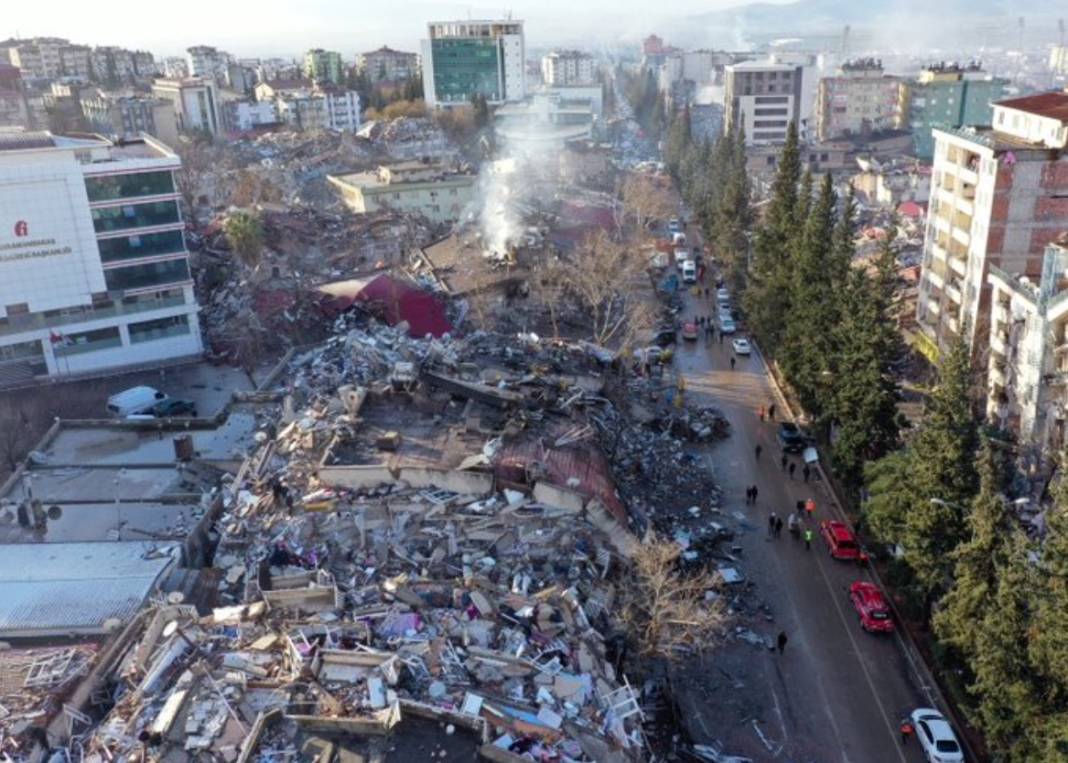« The devastating scale of Monday’s earthquake in southern Turkey presents « serious difficulties » for planned elections in mid-May, a Turkish official said on Thursday, in the first sign that authorities could consider postponing the vote. » Dominic Evans reports in Reuters on February 9, 2023.
President Tayyip Erdogan, seeking to extend his rule into a third decade, said last month the elections would be held on May 14. Opinion polls published before the earthquake suggested they would be his toughest electoral challenge yet.
Erdogan’s popularity has already been eroded by the soaring cost of living and a slump in the lira. He now faces a wave of criticism over his government’s response to the deadliest quake to hit Turkey since 1999, shortly before he rose to power.
Whatever the political fallout from the disaster, the logistical challenge of holding elections in the affected areas are immense. The region affected by the quakes is home to some 13 million people, and hundreds of thousands need shelter after their buildings were destroyed or rendered unsafe.
« It’s really too early to talk about the election, » said the Turkish official, who spoke on condition of anonymity.
« There is a state of emergency already for three months, 15% of the population lives in that region, a region that produces close to 10% of GDP. »
He said Erdogan’s AK Party (AKP) and its nationalist MHP parliamentary ally would assess the issue, but suggested it was too soon to decide in the immediate aftermath of the earthquake while the death toll was still rising.
« It seems like we have came out of the election period that we were entering. We will look at the developments, but right now there are serious difficulties in holding an election on May 14. »
Erdogan had been expected to declare formally in March that he was bringing forward the presidential and parliamentary votes to May 14 from their mid-June scheduled date.
Criticism of Turkey’s emergency response to the earthquake has been growing, with survivors and opposition politicians accusing the government of slow and inadequate relief effort.
While angry comments were splashed across social media, Twitter was restricted in Turkey on Wednesday, the internet observatory Netblocks reported. It was restored on Thursday.
Turkish journalist Can Dundar, living abroad and sentenced in absentia to 27 years in jail on charges of espionage and aiding a terrorist group, said Erdogan came to power after a 1999 earthquake and would be driven out by this latest one.
Criticism of the response to the 1999 quake, in which 17,000 people died, was one factor behind a collapse in support for the then-government, which helped the AKP triumph in 2002.
« Erdogan came to power in the wake of the 1999 earthquake; it looks like he’ll go in the wake of the 2023 earthquake, » Dundar said in a video posted on Twitter. « This earthquake that has claimed thousands of lives will bury him in the wreckage. »
Reuters, February 9, 2023 by Dominic Evans.

